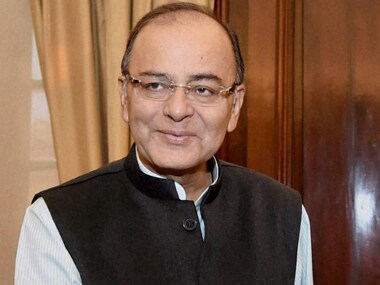The first full budget of the Modi government will be out on February 28. Here’s what India heads of IT giants such as Microsoft, Cisco, Dell, and AMD expect from Union Finance Minister Arun Jaitley’s upcoming Budget. [caption id=“attachment_2079767” align=“alignleft” width=“380”]  PTI[/caption] Bhaskar Pramanik, Chairman, Microsoft India Over the past nine months, the Government has set the right context and articulated its vision for India’s economic development. We look forward to this vision being realised over the next year with key announcements in the Budget. Programmes such as Digital India, smart cities and Skill India require the creation of technological infrastructure that will need budgetary support. A policy framework for industry and SMEs in particular that encourages innovation and adoption of technology can boost the Make in India initiative. We hope this year’s budget will create an enabling environment for Indian industry to realize its growth potential. Dinesh Malkani, President, Cisco India and SAARC - A development-focused budget that targets a growth rate of 8 percent and includes measures to infuse positive sentiments for rejuvenating the overall economy. We hope the government will make announcements that will not only attract investments, but will also help nurture an innovation ecosystem. Such an ecosystem will be a key factor in driving sustainable growth in the years to come. - The ‘Digital India’ initiative launched by the government in August last year places technology at the core of its vision of achieving country transformation. It also envisions a larger role for the private sector, and this gives us to reason to believe that the outlook and prospects for this sector will be enhanced under the budget. - The government has announced plans for setting up 100 smart cities across the country. In the interim budget presented last year, allocations to the tune of Rs 7,060 crore were made towards this initiative. The industry expectation is that the new budget will include specific announcements to further facilitate this program. - While the business environment has been positive in the last few months, there is a sense of expectation within the industry for policies and reforms that will place India Inc. on a growth fast track. One area for potential reform is taxation. A stable and rationalized tax regime will go a long way in creating an environment that is conducive to growth and job creation. Alok Ohrie, President and Managing Director, Dell India There are two factors that could potentially boost the manufacturing ecosystem, if taken into consideration in the upcoming Budget. The first is with regard to the inverted duty structure. While most key global leaders in the personal computers space have set-up manufacturing operations in India, most of the domestic demand is still being catered to by imports. The customs and central excise tariff structure has historically been such that, the finished goods import for resale/direct import are more often than not better placed than import of components for manufacture and supply. For import substitution to occur, it is imperative for the tariff structure be restructured to provide the much needed edge to a domestic manufacturer. The impact of the inverted duty structure is such that it effectively makes direct import by end customers or trading (i.e., import and sale) of IT hardware/ ITA goods far more advantageous in comparison to manufacturing of these products in India, thus making Indian manufactured goods non-competitive for the domestic market. Streamlining the tax rate for components across the board and extending the benefits that mobile manufacturing gets today, will normalize the situation. The second is an exports-led approach. Dell believes that there is great potential to develop India as an exports hub for the region. An exports push could potentially attract investment in the component manufacturing ecosystem, due to the surge in demand. In terms of incentives and support from the government, we would like to place our views which would benefit the overall industry, and this is currently an ongoing discussion. The extension of the Focus Product Scheme in the upcoming Foreign Trade Policy will provide the necessary impetus for exports.” Ravi Swaminathan, Managing Director, AMD India & Corporate Vice President, AMD South Asia We are interested in a transparent, stable and sustainable roadmap for creating a vibrant domestic industry. In the interim Budget last year, the government pledged to support the growth of domestic information technology capabilities in both hardware and software, this year we expect the budget to be aggressive, focusing on making India emerge in the top three hardware countries in terms of demand. With this Budget, we look forward to India becoming a centre of excellence for product development and design and also being integrated into the global supply chain with manufacture of key components for both domestic and international markets. Talking about the industry at a whole, we believe affordable broadband, radical government process re-engineering and the use of IT in all government processes will be the biggest enablers.
The first full budget of the Modi government will be out on February 28. Here’s what India heads of IT giants such as Microsoft, Cisco, Dell, and AMD expect from Union Finance Minister Arun Jaitley’s upcoming Budget.
Advertisement
End of Article


)

)
)
)
)
)
)
)
)



